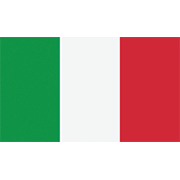Fiscal subject related
The most relevant obligations refer to:
- If the consumer selects the products using a keyword , general information must be provided in relation to the "main parameters which determine the classification of the products presented as a result of his search and the relative importance of these parameters compared to others". This information must be easily accessible from the web page that the consumer opens to search. (The obligation does not apply to online search engine providers but to marketplaces and e-commerce sites.)
- For all types of trade, the rules on price and discounts apply : the lowest price charged by the professional in the previous 30 days must also be indicated in the price reduction announcements.
- If the search results include advertisements or sites that have paid to get a better ranking, this must be clearly indicated, in the sense that the consumer must be aware of it.
- On the front of reviews published on products, relevant information must be clearly provided to the user, including the guarantee that their authors have actually purchased or used the product in question.
- An exchange between the product/service and the consumer's personal data is possible, but is subject to all the rules of clarity, transparency, and fairness required by law.
- On the right of withdrawal, it is clarified that the consumer , when withdrawing from a contract, must refrain from using the digital content or service and from making it available to third parties.
Other news from Italy
Italy uses AI-Powered chatbot to detect VAT Fraud in real time.
 Italy
Author: Nikolina Basić
Italy
Author: Nikolina Basić
Italy has introduced an AI-powered chatbot that works alongside the VeRa system to detect VAT fraud in real time by scanning transactions and flagging irregularities for tax authorities. This forms part of Italy's broader digital tax enforcement strategy, with a focus on data accuracy and real-time compliance. Italy is taking a bold step in tax enforcement with the introduction of AI-drive... Read more



New document was uploaded: Layouts of the commercial documents and examples
 Italy
Author: ----
Italy
Author: ----
The document provides standard and compact layouts for commercial documents such as receipts, returns, and cancellations, in compliance with Italian fiscal requirements. It illustrates the structure of sales or service documents, including mandatory fields like VAT rates, totals, lottery codes, document hashes, and two-dimensional codes for traceability. Specific rules apply for payments entirely in cash, including mandatory rounding adjustments displayed as “Discount to pay” or “Arro. DL N.50/2017.” Read more
Subscribe to get access to the latest news, documents, webinars and educations.
Already subscriber? Login


Italy revokes paper receipts in the near future.
 Italy
Author: Nikolina Basić
Italy
Author: Nikolina Basić
Italy will phase out paper receipts starting in 2027, replacing them with digital receipts sent via email or SMS, with large retailers transitioning first, followed by smaller businesses in stages through 2029. Paper copies will still be available upon customer request, while upgraded POS systems will transmit transaction data directly to tax authorities. In a step toward modernization and environ... Read more



New webinar was uploaded: Recorded webinar: EV Chargin in Europe - Green Growth Meets Fiscal Reality
On June 19th, 2025, Fiscal Solutions organized a free webinar on the topic of "EV Charging in Europe—Green Growth Meets Fiscal Reality." The webinar was held by Fiscal Solutions Sales Manager Gordana Lakić. Let’s find out more on this! Read more
Subscribe to get access to the latest news, documents, webinars and educations.
Already subscriber? Login


New Fiscal Rules for EV Charging Stations in Italy
 Italy
Author: Nikolina Basić
Italy
Author: Nikolina Basić
In 2025, Italy introduced mandatory electronic reporting for public EV charging station operators, requiring them to record and transmit daily transaction data—similar to vending machines—under new tax rules from the Agenzia delle Entrate. Certified software solutions may replace traditional cash registers if they ensure secure, immutable data capture, integration with payment systems, and automatic transmission to the tax authority. Read more
Subscribe to get access to the latest news, documents, webinars and educations.
Already subscriber? Login


New document was uploaded: S4F backoffice patch
S4F backoffice patch is intended for users who have already installed S4F backoffice and are intended to update existing installations to latest version. To do so apply only patches that are marked with version number that is newer than your currently installed instance of backoffice. Please make sure to install all available patches sequentially (without skipping). This package contains instruction, release notes, changelog and software packages required for deployment of this software component. Read more
Subscribe to get access to the latest news, documents, webinars and educations.
Already subscriber? Login


New webinar was uploaded: Recorded webinar: Fiscalization and online sales in European countries
On May 15th, 2025, Fiscal Solutions organized a free webinar on the topic of "Fiscalization and online sales in European countries". The webinar was held by Fiscal Solutions Legal Consultant Nikolina Basić. Let’s delve deeper into this topic! Read more
Subscribe to get access to the latest news, documents, webinars and educations.
Already subscriber? Login

